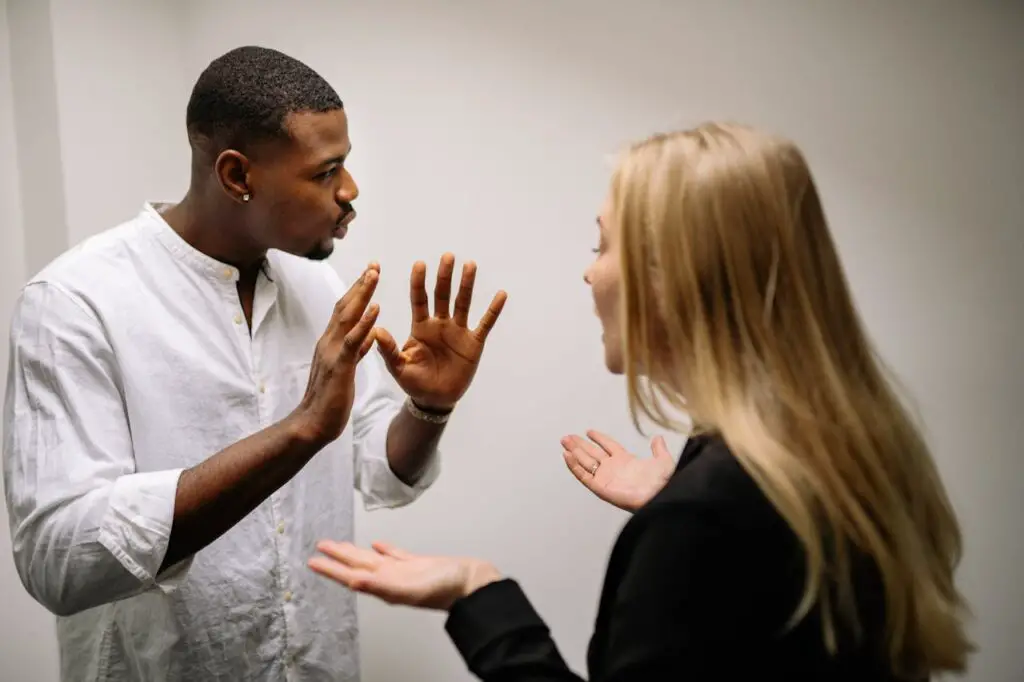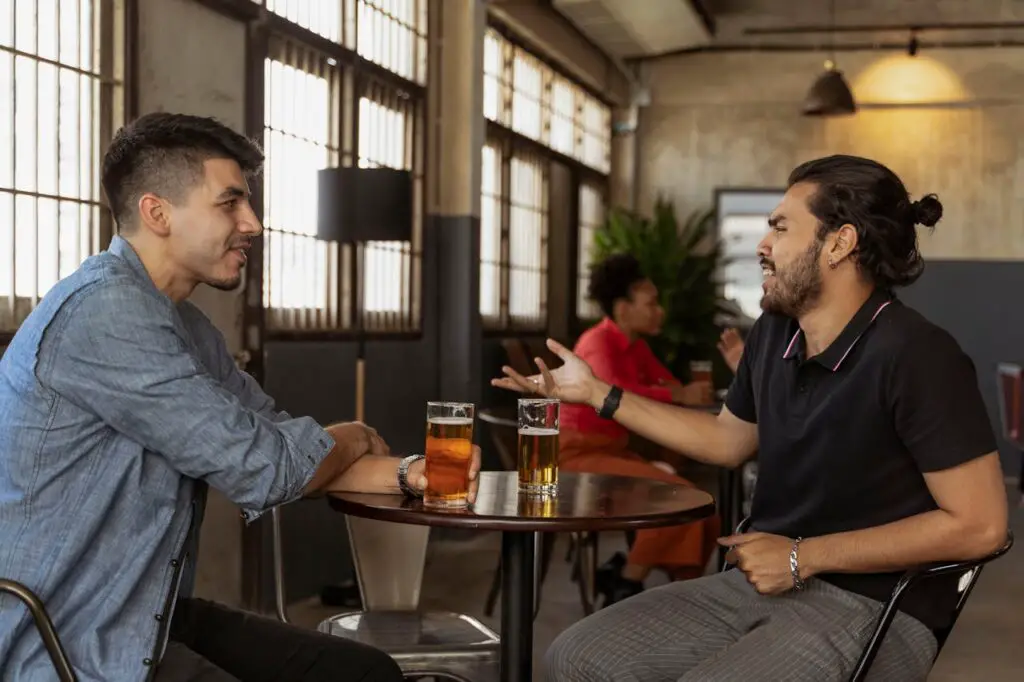10 Rude Habits That People Really Need to Stop Doing (And What to Do Instead)

Let’s face it—we’ve all encountered someone whose behavior made us cringe. Whether it’s a loud phone conversation in a quiet café or someone cutting the line at the grocery store, rudeness is everywhere. But what’s worse is that many people don’t even realize they’re being rude. These behaviors not only irritate others, but they also chip away at the fabric of everyday kindness. If you want to make the world a slightly better and more polite place, it starts with awareness. Below are 10 rude habits that people really need to stop doing—along with suggestions on how to become more considerate and socially aware in everyday situations.
1. Talking Loudly on Speakerphone in Public

There’s nothing more grating than someone blasting their personal conversation through speakerphone in a public space. Whether you’re in a waiting room, on public transport, or walking through a store, using speakerphone in public comes off as inconsiderate and disruptive. It forces everyone around you to unwillingly become part of your conversation. If you need to make or take a call, use headphones or step outside to a more private area. Respect for others’ peace and quiet goes a long way in maintaining a shared sense of civility in public settings. Conversations are meant to be private for a reason, and having them in a public setting with the volume up high shows a lack of boundaries and awareness.
2. Not Saying “Thank You” or Acknowledging Kind Gestures

A lack of basic gratitude is one of the most commonly overlooked rude behaviors. Whether someone holds the door open for you, lets you merge into traffic, or brings you a cup of coffee, acknowledging the gesture with a simple “thank you” is the least you can do. Ignoring kindness sends a message that you feel entitled rather than appreciative. Practicing gratitude not only makes others feel valued but also cultivates a positive and respectful atmosphere in everyday interactions. Gratitude, even when expressed in small ways, has the power to brighten someone’s day and reinforce good behavior. Failing to acknowledge others makes you seem indifferent, which can strain both personal and professional relationships.
3. Checking Your Phone During Conversations

Constantly checking your phone while someone is talking to you is a modern-day form of disrespect. It sends the message that the person you’re with is less important than whatever notification just popped up. This habit can be especially hurtful in personal relationships, work meetings, and social gatherings. To fix this, put your phone away or on silent and give the people you’re with your full attention. Genuine presence is rare and valued in today’s distracted world—practice it, and others will notice. Prioritizing human connection over digital distraction shows emotional intelligence and deepens your connections with others. When someone sees you make eye contact and truly listen, it leaves a lasting impression.
4. Not Cleaning Up After Yourself in Shared Spaces

Leaving behind your mess—whether it’s in a shared office kitchen, public restroom, or someone else’s home—is both thoughtless and selfish. People often assume that someone else will take care of their crumbs, spilled coffee, or trash, but that “someone” ends up being the next unlucky person. Taking responsibility for your mess not only shows maturity but also respect for those who share the space with you. Clean up after yourself as if you were the one coming in next—it’s a simple mindset that makes a huge difference. Maintaining shared environments benefits everyone and demonstrates that you’re not only self-aware but also community-minded.
5. Interrupting Others While They’re Speaking

Cutting someone off mid-sentence is more than just poor conversation etiquette—it shows a lack of patience and regard for others’ opinions. This habit tends to surface in heated discussions or when someone is eager to share their thoughts, but it ultimately derails meaningful dialogue. Instead of interrupting, actively listen and wait for your turn to speak. You’ll find that the conversation flows more naturally, and people will appreciate your ability to truly hear them out. Being a good listener is one of the most underrated yet powerful social skills, and mastering it leads to better relationships, smoother collaborations, and a more respectful exchange of ideas.
6. Blasting Music or Videos in Public Without Headphones

There’s a reason headphones exist—it’s so the rest of the world doesn’t have to listen to your playlist, TikToks, or YouTube videos. Playing media out loud in public spaces, whether it’s at the park, on the bus, or in a waiting room, is not just annoying; it’s downright rude. It invades others’ personal space and creates unnecessary noise pollution. Always carry headphones or earbuds with you if you plan to listen to something. Respecting other people’s need for a quiet or neutral sound environment is basic public courtesy. Plus, being mindful of your audio habits helps maintain a more peaceful, less chaotic public environment for everyone.
7. Being Chronically Late and Not Apologizing

Running late once in a while happens, but being chronically late and acting like it’s no big deal is a serious sign of disrespect. Time is one of the most valuable things people have, and making others wait—especially without explanation or apology—shows you don’t value theirs. If you know you’re running behind, let people know as soon as possible. And when you arrive, offer a sincere apology. Better yet, work on building habits that help you be more punctual. It shows you’re reliable and that you respect other people’s schedules. Being on time is not just about showing up; it’s about showing that you care enough to plan ahead.
8. Leaving Shopping Carts in Parking Spaces

One of the smallest but most frustrating rude behaviors is leaving a shopping cart in the middle of a parking space instead of returning it to the designated corral. It might seem trivial, but it creates inconvenience for others and makes more work for store employees. Taking 30 seconds to return your cart is an easy way to be a more considerate shopper and citizen. It’s a small act that signals personal responsibility—and believe it or not, people do notice these things. Those simple choices often reflect larger patterns of behavior, and being the kind of person who does the right thing—even when no one’s watching—builds integrity.
9. Oversharing or Dominating Conversations

Everyone loves a good story, but some people take over every conversation with their opinions, experiences, or personal dramas, leaving little room for others to speak. This kind of behavior can make interactions feel one-sided and exhausting. The key to a good conversation is balance: ask questions, listen actively, and invite others to share. If you notice you’re the only one talking, take a step back. Being a good conversationalist is about engaging with others, not performing a monologue. When you let others share their thoughts, the conversation becomes richer, more inclusive, and far more enjoyable for everyone involved.
10. Not Respecting Personal Space

Standing too close to someone in line, leaning over their shoulder to see their screen, or touching them without consent all fall under the umbrella of ignoring personal space—and it’s surprisingly common. Everyone has different comfort levels, and violating that space can make people feel anxious, annoyed, or even threatened. Be mindful of body language and context. If you’re unsure, err on the side of giving more space, not less. It’s an easy way to show respect and consideration for others’ boundaries. Understanding spatial cues and respecting personal boundaries is key to avoiding awkward or even confrontational situations in social or professional settings.
Final Thoughts

Rude habits, no matter how small they may seem, add up over time and can significantly impact how others perceive you. Most of these behaviors are born out of laziness, distraction, or lack of awareness—but the good news is that they’re completely fixable. With just a little mindfulness and effort, you can break these bad habits and replace them with actions that make people feel respected and valued. Kindness doesn’t have to be complicated. Often, it starts with simply paying attention to how your actions affect those around you. The next time you’re in a rush or feel tempted to ignore basic courtesies, remember that a little politeness can go a long way in making the world a more pleasant place to live. Let’s all do our part to stop these rude habits and encourage a culture where kindness, empathy, and respect are the norm.
Leave a Reply